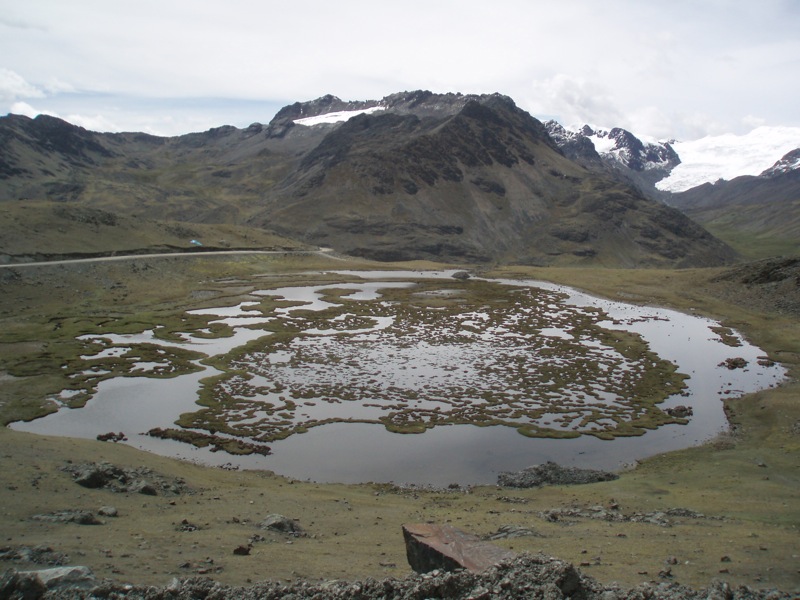據聯合國環境規劃署(United Nations Environment Programme,UNEP)2009年最新出版年鑑及世界銀行泛南美洲報告皆指出,全球氣候在近幾年將接近氣候變遷臨界點,全球氣候變遷速度將快於2007年政府間氣候變遷小組(IPCC)在最新報告中所預期的。
世界銀行此研究主要針對四項氣候相關議題做調查:「安地斯山脈生態崩解與暖化現象、加勒比海盆珊瑚白化與珊瑚礁生物死亡、墨西哥灣大面積溼地及沿岸系統破壞,以及亞馬遜河流域森林枯竭危機。」
世銀報告提到,未來因颶風與熱帶氣旋所造成災害將持續增加,據估計,從2020年到2025年,墨西哥灣沿岸因此受到的損失將多出十倍。
報告提到,對抗暖化以及延緩冰川溶化需要快捷的行動力。
其中一個近程方案的焦點為黑碳(black carbon,或稱煤灰),此為「氣膠」(aerosol)的一種,專家認為這是次於溫室氣體二氧化碳導致氣候變遷的第二大主因,對於冰川溶解有極大影響。
黑碳的生成是因為石化與生質能源的不完全燃燒,造成氣候變遷主要有兩項原因。其一,在大氣裡,此黑色顆粒會吸收熱量、暖化空氣。 其二,當「黑碳」掉落到冰或是雪上,他會吸收更多的太陽輻射加速溶冰速度,導致更少的反射冰形成一惡性循環。
黑碳不如二氧化碳會存在大氣層裡幾千年,它頂多只會懸浮個幾天左右。因此降低黑碳排放即會立即對全球暖化現象有所成效,使得數百萬人的健康不致因為吸入髒污空氣,而增加疾病風險甚至死亡而受益。
另一個負碳(carbon negative)策略則是生物碳的生產,據科學家所言這將在數十年內有效降低現有的二氧化碳濃度。管理與永續發展機構總裁查爾克告誡:「聯合國環境規劃署與世界銀行提出的報告相當明瞭,世界正面臨嚴重危機,未來還需採取更積極迫切的行動──就從降低黑碳開始,以避免過臨界點後的毀滅性後果。」
The planet is quickly approaching the tipping point for abrupt climate changes, perhaps within a few years, according to the UN Environmental Programme's newly released 2009 Year Book and a separate World Bank report now being presented throughout Latin America. The report warns that climate changes are occurring much faster than anticipated by the latest Intergovernmental Panel on Climate Change report, issued in 2007.
In its new report, the World Bank focuses on four climate impacts of special concern: "the warming and eventual disabling of mountain ecosystems in the Andes; the bleaching of coral reefs leading to an anticipated total collapse of the coral biome in the Caribbean basin; the damage to vast stretches of wetlands and associated coastal systems in the Gulf of Mexico; and the risk of forest dieback in the Amazon basin."
Damage from hurricanes and tropical storms will increase, the World Bank reports. Estimates suggest that losses from hurricane damage along the coasts of the Gulf of Mexico "could increase tenfold from 2020 to 2025."
Combating rising temperatures and slowing the rate that ice and snow are melting requires quick action.
One near-term solution is to focus on black carbon, or soot, an aerosol that scientists assert may be the second largest contributor to climate change after the greenhouse gas carbon dioxide and that has an enhanced impact on snow and ice melt.
Black carbon is emitted from incomplete combustion of burning fossil fuels and biomass, and contributes to climate change in two ways. First, while in the atmosphere, the dark particles absorb heat and warm the air.
Then, when black carbon falls on ice and snow, it absorbs more solar radiation, leading to more rapid melting, which then leads to less reflective ice, in a dangerous accelerating feedback cycle.
Unlike carbon dioxide, CO2, which remains in the atmosphere for over a thousand years, black carbon lingers only for a few days, so reducing black carbon emissions would have an immediate effect on global warming and also would have health benefits for millions of people risk disease and death from breathing polluted air.
Another carbon negative strategy is the production of biochar, which scientists say can significantly reduce current CO2 concentrations within decades. Durwood Zaelke, president of the Institute for Governance and Sustainable Development. warns, "The UNEP and World Bank reports are clear - the world is facing serious danger, and we have to take urgent and aggressive action now - starting with black carbon reductions - to avoid devastating consequences of passing tipping points."





